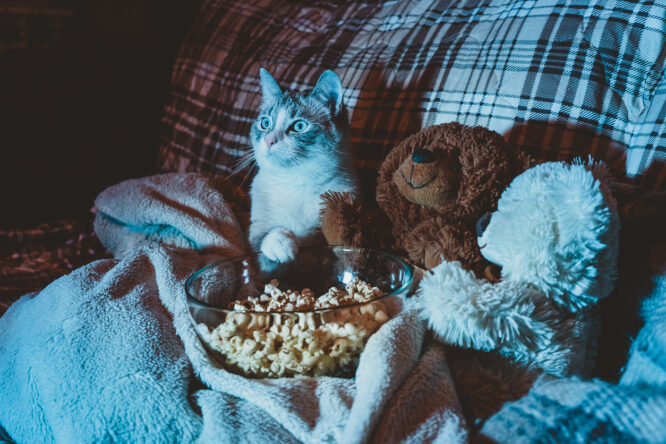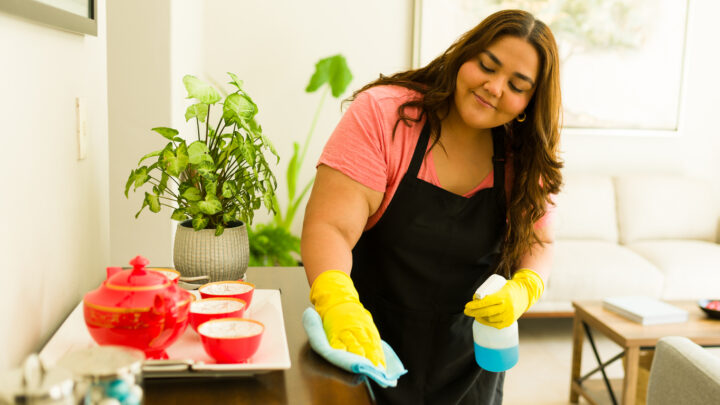Not all old advice ages like a fine wine—some of it sits in the back of your brain like a tin of mystery meat from 1974.

This is especially true in the kitchen, where passed-down tips often stick around long past their sell-by date. Sure, a few of those vintage habits still hold up, but plenty are more superstition than science, or just completely irrelevant in modern life. Here are the bits of kitchen wisdom that people have given up for a reason. If you’re still doing any of these things, it might be time to move on.
“Always rinse your meat before cooking.”
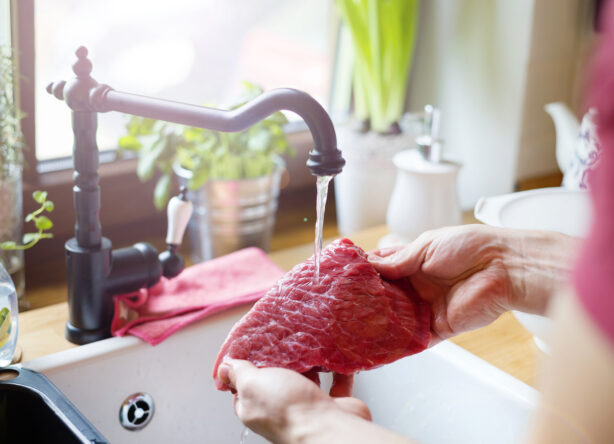
Once considered a hygiene must, rinsing raw meat in the sink is now widely advised against. All it really does is splash potentially harmful bacteria around your kitchen, especially onto nearby surfaces or utensils. The heat of cooking will kill off bacteria—your tap won’t. It might’ve made sense decades ago when meat processing wasn’t as regulated, but these days, it’s more risky than useful. Save yourself the cleanup and let your stove do the sanitising.
“Salt your water once it’s boiling.”

This advice isn’t harmful, but it’s totally unnecessary. Salt dissolves whether the water is boiling or cold—adding it before or after won’t change that. The idea that it somehow “waits” for the boil is pure kitchen folklore. In reality, adding salt earlier gives it more time to infuse whatever you’re cooking. Plus, despite rumours, it won’t delay boiling enough to matter. Timing isn’t the enemy here—taste is.
“You can tell an egg is fresh by spinning it.”
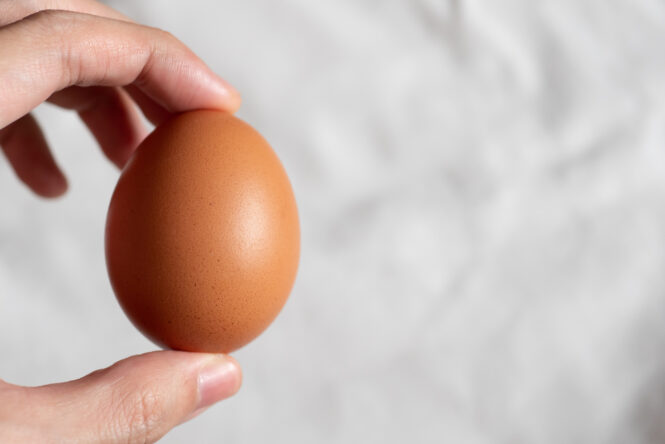
This one’s been passed around like kitchen gossip, but it’s not the most accurate way to judge freshness. Spinning only tells you if the yolk is intact—not how fresh the egg is. If you’re serious about checking, use the float test instead. Drop an egg into a bowl of water—if it sinks and lays flat, it’s fresh. If it stands upright or floats, it’s on its way out. Much more reliable than a wobbly twirl on the worktop.
“Microwaves zap all the nutrients out of food.”
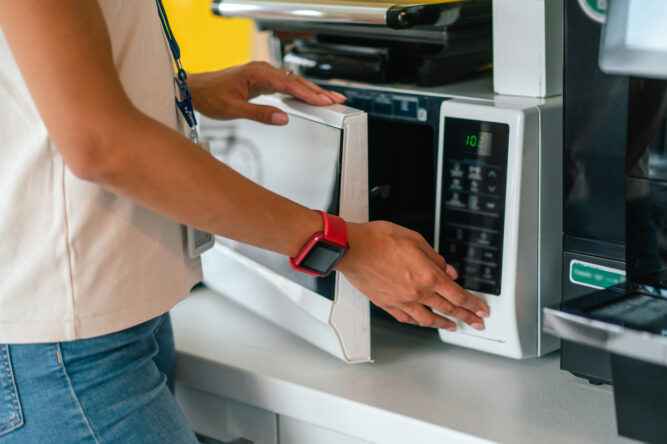
This myth refuses to die. Microwaves don’t destroy nutrients any more than other forms of cooking. In fact, because microwaving is faster and uses less water, it often preserves nutrients better than boiling or roasting. So if you’re reheating those leftovers with a twinge of guilt, don’t. Microwaving is efficient, convenient, and far from the nutrient thief it’s made out to be.
“Use a wooden spoon to stop water boiling over.”
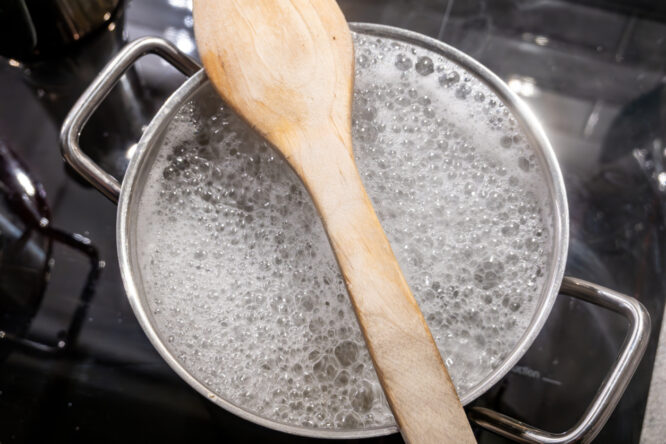
This trick sort of works, but not in the way people think. The spoon doesn’t magically stop water—it just breaks the bubbles briefly, which can delay an overflow for a moment. However, leave it too long, and you’ll still have a mess on the hob. If you want to stop water boiling over, reduce the heat or use a larger pot. A wooden spoon perched on top is more for show than long-term effectiveness.
“Butter keeps better outside the fridge.”
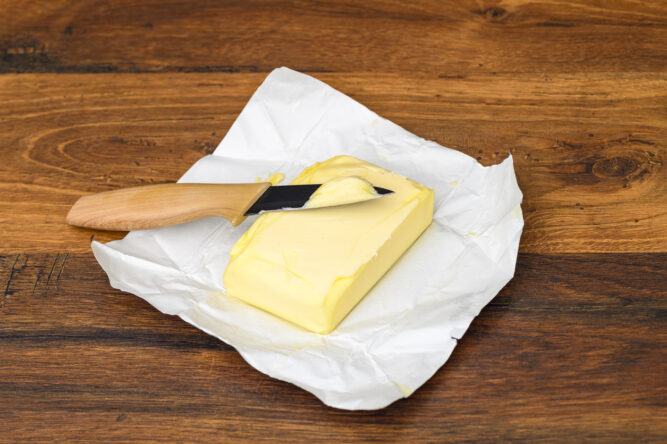
This one depends heavily on where you live. In the UK, especially during summer, room temp butter can turn quickly, especially if left uncovered. Older generations swore by the butter dish, but it’s a risky move in modern kitchens. If you want spreadable butter without the gamble, keep a small portion out and store the rest in the fridge. It’s the best of both worlds—no spoiled butter, no brick-hard toast topping.
“You need to preheat everything.”
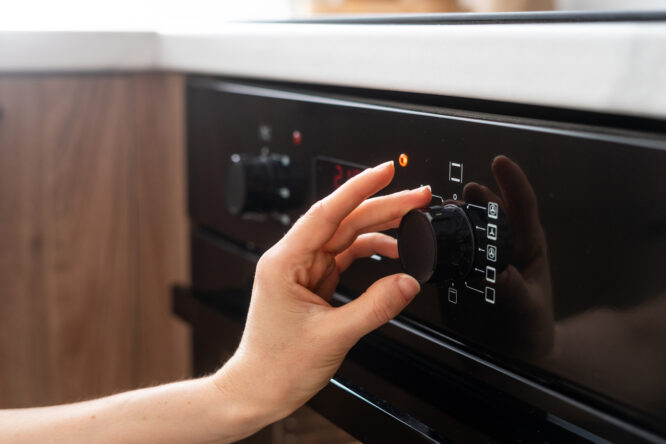
Some ovens do benefit from preheating, especially when baking. However, for roasting veg, casseroles, or even frozen chips, it’s not always essential. Modern ovens heat quickly, and some dishes do just fine going in cold. This old habit came from older, less consistent ovens. Today’s models are more reliable, and sometimes skipping the preheat actually gives a better texture. It’s not lazy cooking, it’s adapted cooking.
“A sharp knife is more dangerous than a dull one.”
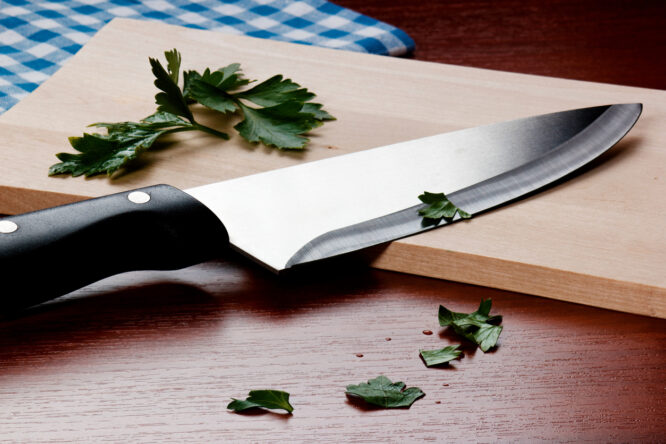
This is one of those phrases that sounds wise but makes no sense in practice. A sharp knife is actually safer—it cuts cleanly and predictably, reducing the chance of slipping or sawing into something you shouldn’t. A dull blade forces you to use more pressure, which increases the odds of slipping and cutting yourself. Keeping knives sharp isn’t just about fancy chopping—it’s about not needing plasters every Sunday roast prep.
“Add oil to pasta water to stop sticking.”
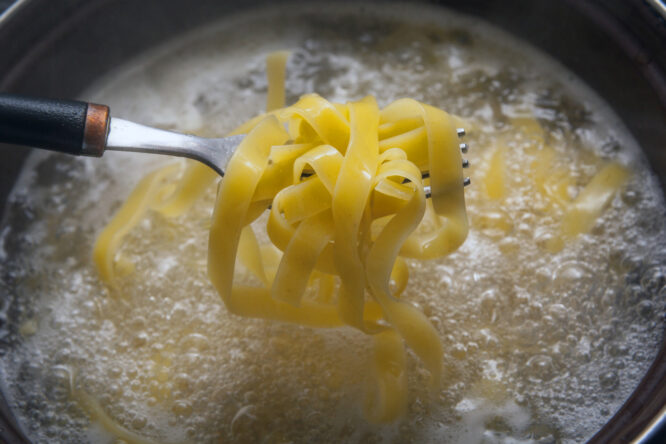
Oil in pasta water does nothing to stop sticking—it just floats on the surface. The real way to stop pasta from clumping? Stir it during the first couple of minutes and use enough water to give it room to move. Save your oil for after the pasta’s drained, if you really want to add it. Or better yet, just toss it with sauce straight away and let that do the work.
“Always cook meat until it’s well done.”
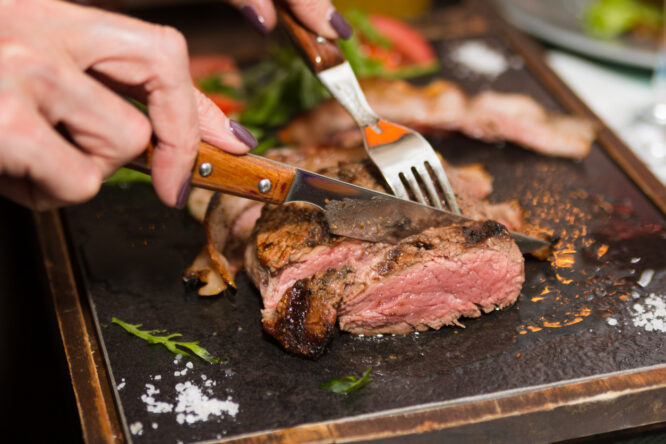
This advice likely came from fear of undercooked meat and poor food safety awareness. But today, with proper hygiene and temperature control, not every cut needs to be cooked to oblivion. Overcooked meat loses its flavour, moisture, and joy. Use a thermometer, learn your cuts, and trust that not everything needs to be grey and bone-dry to be safe to eat.
“Use lemon juice to clean everything.”
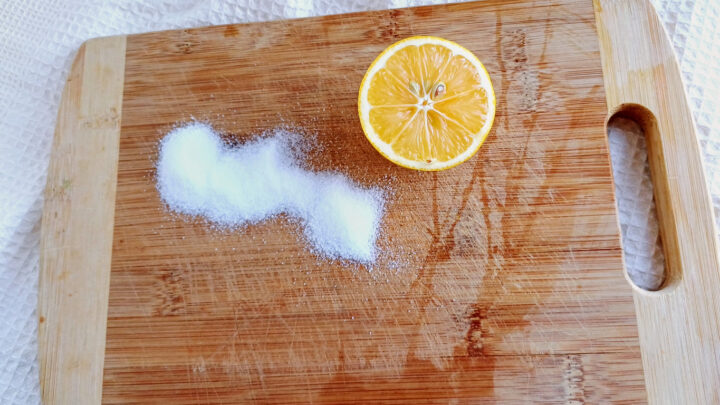
While lemon is great for some surfaces, it’s not a miracle cleaner. On things like marble or unsealed stone, the acid can cause damage. It also doesn’t fully disinfect, so it’s not a replacement for proper cleaning products where hygiene matters. It smells nice and adds a bit of shine, but it’s not the all-purpose hero old-school tips might make it out to be. Use it smartly, not blindly.
“If food smells fine, it’s safe to eat.”

This one’s tricky. While smell can be a decent first check, it’s not foolproof. Bacteria like Listeria don’t always have a strong odour, and some spoiled foods won’t smell “off” until they’re well past safe. Trust your nose, but also trust use-by dates, especially for meat, fish, and dairy. Sometimes your senses aren’t as sharp as they think they are.


